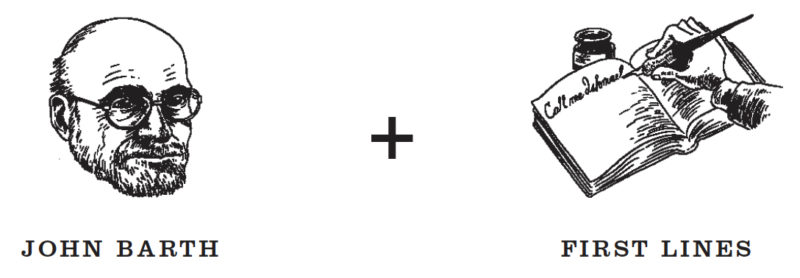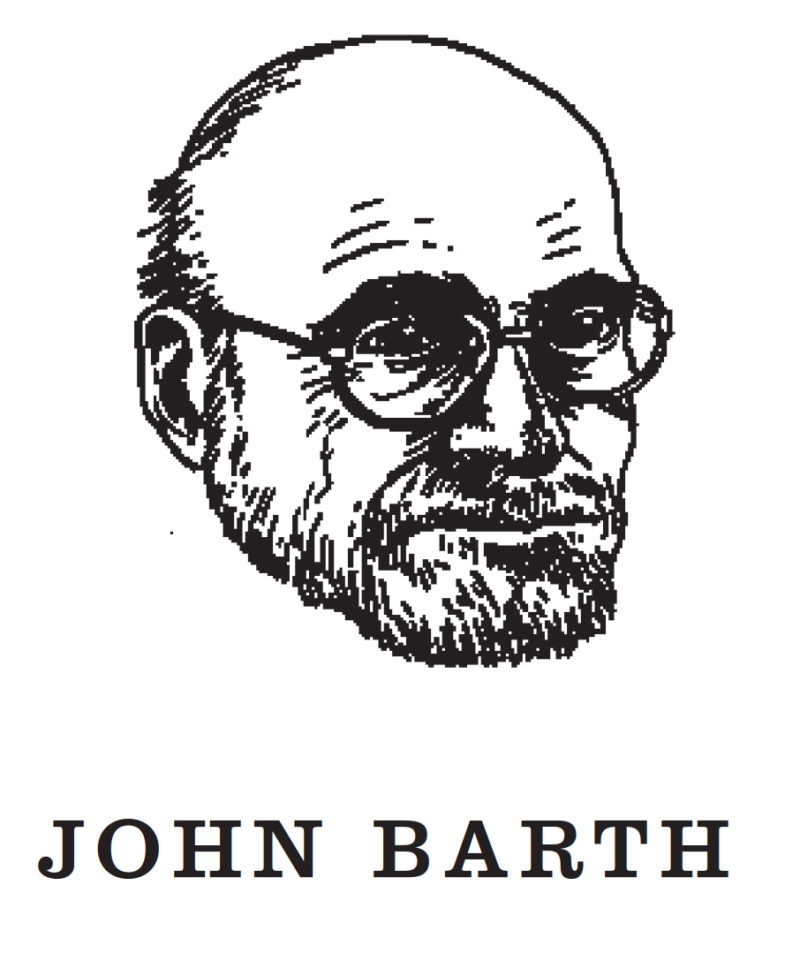
“Happy families are all alike, but each unhappy family is unhappy in its own way.” I happen not to agree with that famous opening proposition of Tolstoy’s Anna Karenina, but I’ll carry it to my grave along with a clutch of other jim-dandy story starters.
A first sentence’s job is to draw its reader into the sentence after it—while at the same time, in the case of fiction, maybe establishing the tale’s tone and narrative viewpoint, introducing one or more of its characters, and supplying preliminary hints of setting, situation, and impending action. Some do that job so well that they remain in our memory long after we’ve forgotten most of the words that followed, even in a novel that may have changed our lives. A Tale of Two Cities is neither the best nor worst of Dickens’s novels, but it’s the only one whose opening—“It was the best of times, it was the worst of times…”—has stayed with me. Likewise Melville’s disarming “Call me Ishmael” and García Márquez’s time-straddling fanfare that opens One Hundred Years of Solitude—“Many years later, when he faced the firing squad, Colonel Aureliano Buendía would remember that distant afternoon when his father took him to discover ice”—and a dozen more, from the bibliophilic beagle Snoopy’s “It was a dark and stormy night” in Charles M. Schulz’s Peanuts comic strip (a cliché opening that the poor mutt never gets beyond) to the slyly soporific first words of Marcel Proust’s multivolume Remembrance of Things Past. “Longtemps je me suis couché de bonne heure,” it reads in the original; the poet-translator Richard Howard renders it “Time was when I went to bed early,” so that Proust’s epic about time begins (as it will end) with that key word—and then, seven volumes later, outflanks its subject by having “Marcel,” at the saga’s close, set about to write the time-intensive tale we’ve finally finished reading.
If that sounds too clever by half, it has some distinguished and comparably dizzying antecedents—none more offhandedly cunning than the opening of “Scheherazade”’s Book of a Thousand Nights and a Night. English translations from the anonymous compiler’s thirteenth-century Persian vary considerably, but most begin by declaring (in effect, and much less directly), “Praise be to Allah, who has passed on to us the tales called The Thousand Nights and a Night, among which is the story… [of Scheherazade’s telling her nightly postcoital tales to wean the cuckolded King from his serial-murderous revenge].” A double-take opener indeed: The book in our hands, whose introduction we’ve embarked upon, is not Scheherazade’s book, but a book about Scheherazade’s book, which will wind up multivolumes later with the welcome news that King Shahryar relents, lifts his nearly three-year-old entertain-me-or-die ultimatum, marries Scheherazade, and commands her to tell her kilonightsworth of stories all over again to the royal scribes—thus accounting not directly for the book we’re finally at the close of, but for the book that that book is about: “And this is all that has come down to us concerning the origins of this book.”
Amen!
Which terminal imperative may remind us that such ingenious once-upon-a-timery has been a storyteller’s ploy from the beginning, so to speak. Whether or not the God of the Bible ever winked at the devoted audience of His own creation, His chronicler in the Book of Genesis sure did: What subtle, pre-proto-Postmodern chutzpah, to kick off the story of the world’s beginning with the Hebrew word Bereshith, “In the beginning…”—anticipating Proust’s merely Modernist “Time was” by nearly three millennia!
But then, the bards of the classical Greek oral tradition, arguably coeval with Genesis if not with the world’s big-bang commencement, traditionally cleared their epic throats by saying, in effect, “Sing, O Muse, the tale that I’m here and now about to repeat: the one about [etc.].” Which is not necessarily to say, “And while you’re at it, begin at the beginning, OK?” Indeed, by the first century B.C.E., Horace recommends famously that his Roman comrades-in-literary-arms begin their tales not at the beginning but in medias res—in the middle of things, as great Homer did, for better dramatic effect—and then with their left hand fill us in on what led up to the preclimactic point at which their present rendition (though not the ancient tale itself) began. Don’t start ab ovo, Horace advises, from egg that hatched Helen and thereby the Trojan War; begin rather in the next-to-last-year of that classical regime change, and then retrospect strategically as you go along. Advice still worth perpending in Taletelling 101.
A dozen-plus centuries later, at about the same time that the great Persian Anonymous was setting down the story of the story of Scheherazade’s stories, his or her fellow pre-Postmodernist Dante Alighieri, in exile from Florence, racheted up his countryman Horace’s advice by beginning his divinely comic epic not only in the middle of its narrator’s story instead of “In the beginning,” but with the very words Nel mezzo: “In the middle of our life’s road, I found myself lost in a dark wood.” Bravo, maestro!
Tough acts to follow. But a mere six centuries later, James Joyce completes the movement from Genesis’s “In the beginning” through Dante’s “In the middle” by beginning his dream-epic Finnegans Wake not with “The end” but with “riverrun, past Eve and Adam’s, from swerve of shore to bend of bay, brings us by a commodius vicus of recirculation back to Howth Castle and Environs”—which odd, lowercase opener (so we learn 627 dream-dark pages later) is the completion of that cyclical opus’s unfinished closing sentence. In short, the author begins his story literally in the middle of its ending: a triple play at which Dante might have nodded approval, unless he’d nodded off. As a student in the 1950s, I proposed that the appropriate print-vehicle for Finnegans Wake would be not a conventionally bound book, but either a very long roller towel or unnumbered pages fanning out from a central spindle, so that Beginning and Ending would literally conjoin.
Time was (so to speak) when some late-arriving epigones of the great Modernists did indeed chafe at what they felt to be the passé bonds of conventional print technology and experimented with alternatives, not necessarily to the print-medium itself, but to its customary modes of presentation: One thinks of Marc Saporta’s 1962 novel-in-a-box Composition No. 1, its unnumbered and unbound pages packaged in any random “order” and thus sans any fixed opening sentence at all, or any other authorially determined beginning, middle, or ending. That rebellious, “countercultural” decade was particularly rich (if that’s the right adjective) in this sort of post-Dadaist, pre-computer-era experimentation: apprentice writing workshoppers back then came up with such alternatives to conventional taletelling as, e.g., a short story called “Serial,” its several sentences typed on separate paper stripes like cookie fortunes, shaken up in an appropriately refigured “cereal” box, and dumped into a bowl, to be fished out and read in random order, any one of them potentially the story’s opening sentence. One remembers too Spencer Holst’s “Pleasures of the Imagination: Beginnings,” comprising just that: sixty-four more or less arresting openers (“The obese puppeteer washed the dishes in the dark”) with no stories attached.
The advent of word processors, “hypertext,” and online interactive fiction may make such Marshall McLuhan-era innovations seem as quaint as tail-finned autos. But it may also remind us that the mature and stable technology of the printed book, like the narrative and dramatical conventions of Beginning, Middle, and Ending—older than print, older even than writing—can be jiggered and redeployed to memorable effect as long as homo sapiens still savors the eminently human pleasure of hearing and recounting tales. As Donald Barthelme liked to say, the important question about a story isn’t whether it’s traditionalist or “experimental,” pre- or postmodern: The important question is “Does it knock your socks off?”
To which one might add that a real socks-knocker of a story may have a deliberately humdrum opening (“Call me Ishmael”), just as a first-rate movie may start with nothing more “dramatic” than a man shaving or a woman pouring the breakfast coffee. Contrariwise, a lapel-grabbing opening shot or sentence—car chase, pistol fired as if at the viewer, string of BOLDFACE ALL-CAPS OBSCENITIES!—may open an eminently forgettable yarn. Do I have your attention, Reader? On with the story, then.…





